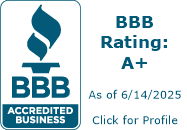Mastering Conflict: Personalized Coaching for Effective Resolution
Navigate Conflict with Confidence & Skill Through Personalized Coaching
How many times have you faced a conflict and you weren’t sure what to do? Or, perhaps you frequently have to interface with a difficult person and you are looking for approaches and techniques to help you hold your ground but reach a resolution? Or, perhaps, your latest performance review at work noted that you have a difficult time handling disputes with your co-workers or customers? Conflict coaching is a one-on-one service whereby a conflict engagement specialist explores with you the circumstances, players and your traditional style and then offers a variety of ways to address and/or manage the difficulty. Depending on your need or desire, the conflict coach will assist on a one-time basis, through a series of difficult situations, or help you develop conflict management skills.
Value and Benefits
Borrowing from a book by Bernard Mayer, the values and benefits of conflict coaching include:
- Improvement in how you manage and perform in a conflict situation;
- Enhanced skills for not only the particular situation, but also how you manage conflict in general;
- Focus on one or two areas of improvement that are achievable rather than a long list of do’s and don’ts; and
- Encouragement to practice conflict management skills and not shy away from contentious situations.
REFERENCE: Beyond Neutrality: Confronting the Crisis in Conflict Resolution.
San Francisco: Jossey-Bass – A Wiley Imprint. 2004. Pages 231-237. Print.
Outcomes
By working with a conflict coach, a person will
- Become more comfortable with conflict and be able to apply constructive responses and find a positive way forward;
- Feel and perform with more confidence;
- More likely achieve positive and constructive conclusions; and
- Be sensitive to a conflict’s pitfalls and crevices so that they may be avoided.
In addition, after having worked with a conflict coach, a person usually has the capacity to step back after a conflict and assess what went well and what might have been done differently thereby continuing their learning and honing their skill.
Explore Some Example Cases:
Getting Cooperation from a Difficult Co-Worker
Harry, a co-worker in another organization within your firm, is giving you grief again. It is his way or the highway and you’re weary from tip toeing around him. This time your project is on a tight timeline and you need Harry’s cooperation quickly. How can you break through Harry’s style and constant disagreements?
Resolving a Family Feud for Your Mother's Well-Being
Your brother and you have been feuding for years but now it is impacting your mother. Some difficult and sensitive family decisions have to be made but you can’t stand to be in the same room with your brother much less talk to him. What is the best approach to overcome your difficulties dealing with your all-knowing, difficult brother and find the best path forward for your Mom?
Building a Strong Relationship with a New CFO
You’re the chairman of a non-profit board for the local two-year technical college. A new Chief Financial Officer (CFO) of the College was just hired but you sense your professional relationship with her is strained. It is critical you work well with the new CFO yet you don’t know what is causing the stress or how to manage it.
Mastering Dispute Resolution to Excel in Leadership
Your mentor just shared that you are on the list of fast track young executives that are being primed for key jobs in the recent merger. Though you are bright, hard-working, and have a reputation of delivering projects with high quality, you are known to be tough to get along with. If you are going to realize your potential, you need learn how to deal with disputes with grace and sensitivity.
